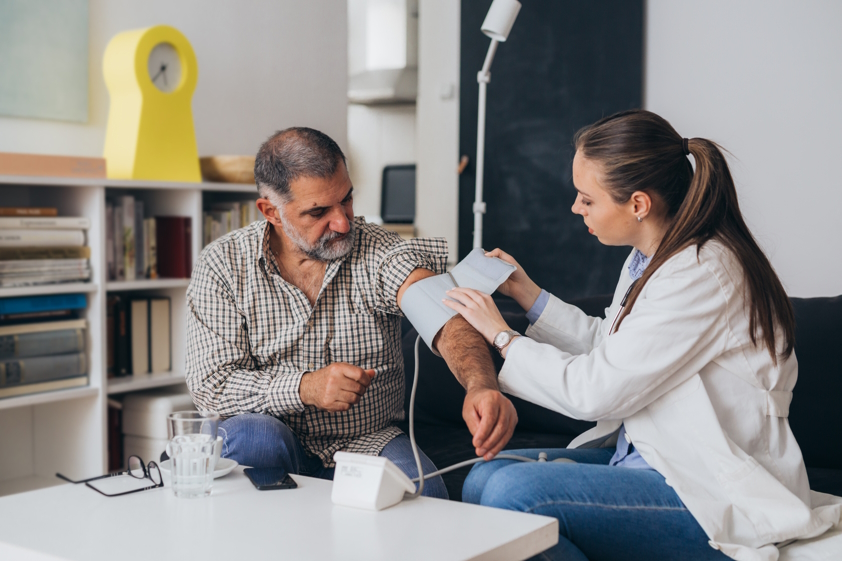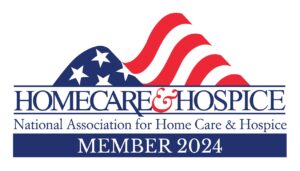Home Health Care and Private Duty Care Ensure Patients Are Set Up for Success
Every 40 seconds, someone in the U.S. has a stroke – that’s more than 795,000 people per year, according to the Centers for Disease Control and Prevention. The risk of stroke increases with age, but can happen at any age.
After your loved one has a stroke, you want only the very best available care for them. That care should start in the hospital. But what happens after discharge?
Phoenix Home Care & Hospice offers private duty care and home health care to help your loved one recover from a stroke, regardless of whether they’re living in their own home, in your home, in a retirement community, or in a long-term care facility.
Following our Stroke Management Guide and with support from nurses, private duty caregivers, and medical social workers, patients and their families are informed of what to expect during recovery and when to seek hospital care.
Private Duty Care for Stroke Patients
Private duty caregivers help your loved one maintain their independence, uphold their dignity, and avoid facility transfers after a stroke. Your loved one can receive home health care and private duty care at the same time through Phoenix Home Care & Hospice; we’ll coordinate your care across both services to foster optimal outcomes.
Private duty care services don’t require a physician’s order, so your loved one can receive one-on-one care as soon as they need them upon hospital discharge. The duration and frequency of caregiver shifts and the tasks they perform is up to you and based on the patient’s needs. Care that never sleeps is available!
Your loved one’s private duty caregiver can:
- Perform basic housekeeping tasks.
- Prepare and plan meals.
- Remind patients to take medications.
- Help with bathing, toileting, and dressing.
- Assist with tasks of daily living.
- Offer companionship.
- Provide respite care to regular family caregivers.
- And more.
Home Health Care Services for Stroke Patients
Like private duty care, home health care services help your loved one through their stroke recovery. However, home health is focused more on nursing care, physical therapy, occupational therapy, and other services to ensure a patient is recuperating and healing.
If your loved one’s physician orders home health care services from Phoenix, a nurse case manager will meet with them to discuss their care needs and create a plan that aligns with their physician’s treatment plan. Then, following a prescribed schedule, your loved one’s home health team will visit them where they live to help them during their recovery.
Home health care providers can include:
- Skilled nursing visits to help with medications, tube feedings, injections, and more.
- Medical social workers to assess your loved one’s social and emotional factors; help identify community resources your loved one may benefit from; and assist with future decision-making.
- Physical therapists to help your loved one regain their strength and mobility.
- Occupational therapists who can help refine motor skills and re-educate muscles.
- Speech therapists who can address and remedy speech difficulties after a stroke.
Phoenix Home Care & Hospice Stroke Management Guide
After your loved one’s stroke, their care team at Phoenix will provide a copy of our Stroke Management Guide. This guide includes explanations of the three stroke zones and what to expect and do in each.
Stay in the Green Zone After a Stroke
When stroke patients are in the green zone, they’re in great control of their post-stroke symptoms and working toward getting healthy again in collaboration with their private duty caregiver, home health care team, or both. To remain in the Green Zone, patients should take all their medications as ordered and attend their doctor appointments.
Green Zone patients aren’t experiencing changes in feeling or movement of their limbs; are thinking and speaking clearly; can swallow and see properly; and are able to maintain their balance when walking (if applicable to the patient’s abilities).
Be Cautious in the Yellow Zone
In the Yellow Zone, patients may have difficulty thinking; feel sad or depressed; or feel poorly, fatigued, or sleepy. Patients who have questions or concerns about their medications, treatment plan, or medical equipment are also considered to be in the Yellow Zone.
Stroke patients who fall into the Yellow Zone should seek medical care right away. They should call their doctor, home health care provider, or another healthcare professional. If they’re under the care of the Phoenix Home Care & Hospice team, call (855) 881-7442.
In the Red Zone? It’s a Medical Alert!
When stroke patients enter the Red Zone, it’s important to call 911 right away to get emergency care.
In the Red Zone, patients are actively experiencing one or more stroke symptoms, including:
- Numbness or weakness in the face, arm, or leg, especially on only one side of the body.
- Trouble seeing in one or both eyes.
- Confusion.
- Trouble speaking or understanding speech.
- Dizziness, loss of balance, or loss of coordination.
- Falls without a known cause.
- Severe headache without a known cause.
Find Reliable and Reputable Home Health Care Providers and Private Duty Caregivers in Missouri and Kansas
After a stroke, your loved one needs your love and support. They also need compassionate, professional care to maintain their independence and to stay healthy. Access both home health care and private duty care from an organization you can trust: Phoenix Home Care & Hospice.
Ask your loved one’s physician to order home health care services specifically from us, and then contact us to set up private duty care upon hospital discharge. Team Phoenix looks forward to helping your loved one heal!






